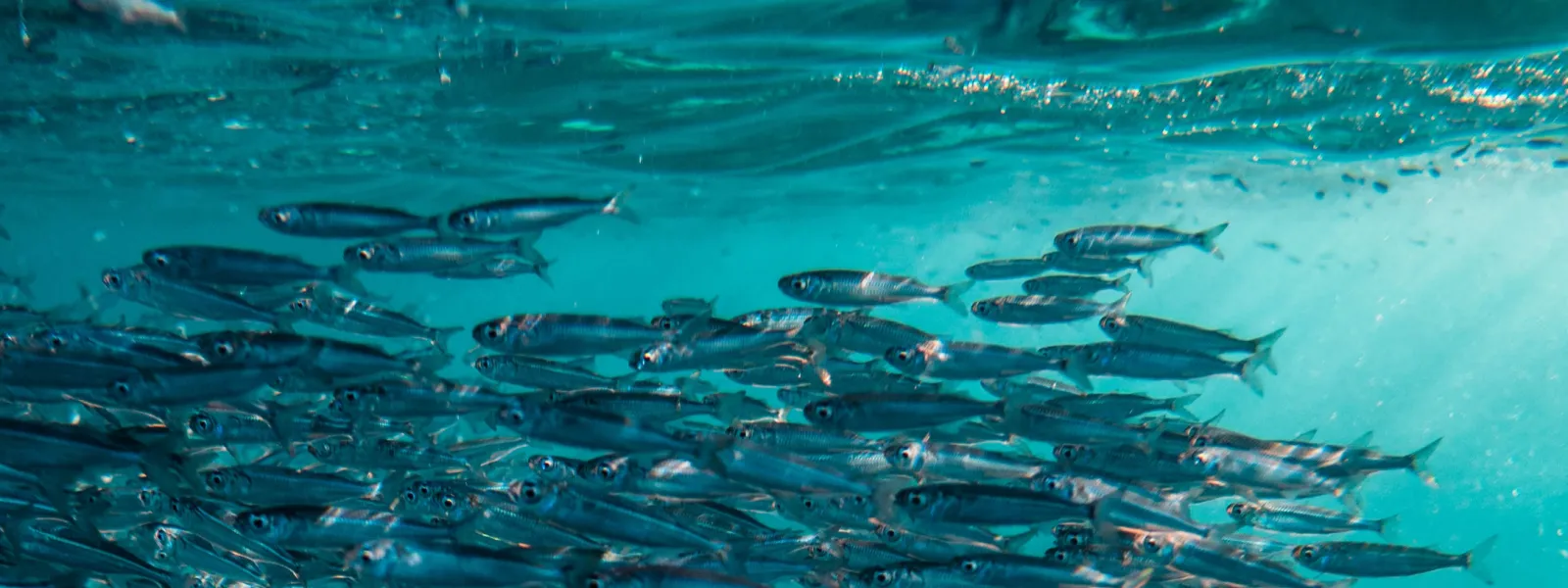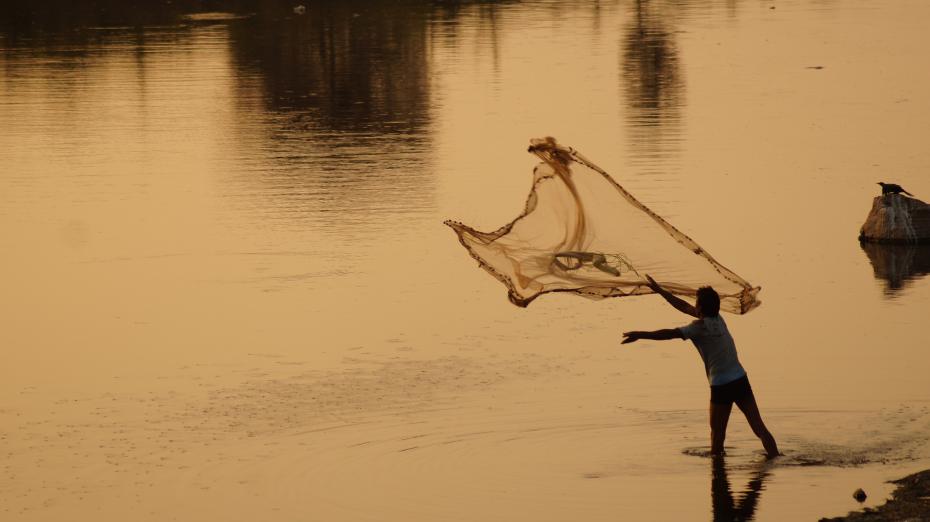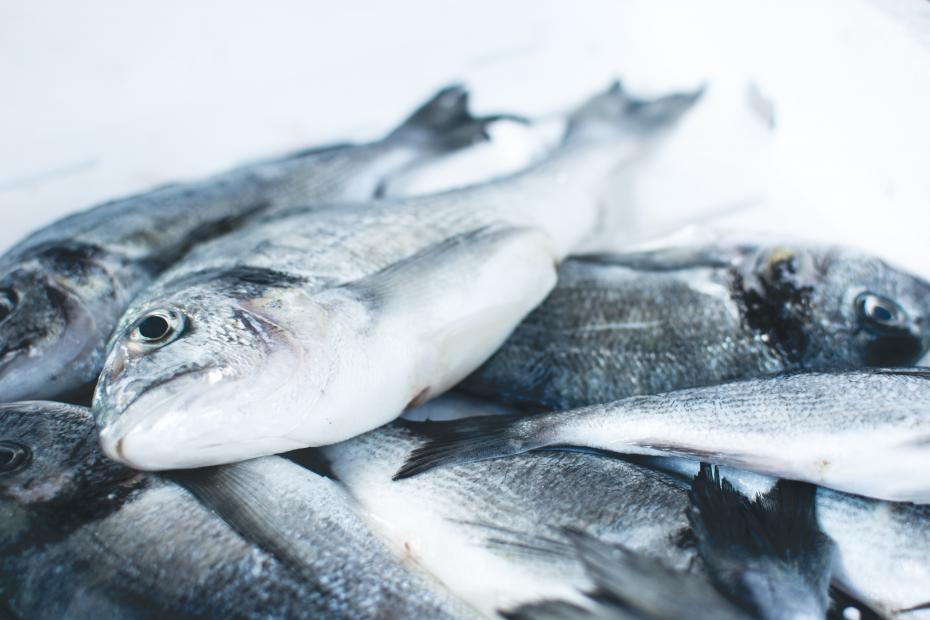
Our responsibility in the conservation of fisheries resources
Photo: Clint Bustrillos on Unsplash.It’s increasingly common to hear people say that they identify themselves as flexitarian, or semi-vegetarian.
Being flexitarian means a person eats mostly a vegetarian diet, but occasionally consumes animal products like meat, poultry, seafood and fish. There are also pescetarians, or pesco-vegetarians, who only consume different varieties of fish and seafood
As with any consumption habit, it is important to reflect on its environmental impact. While the current pattern of meat consumption is not sustainable, largely due to its impacts on the climate, the situation for fish consumption is no more encouraging.
According to the biennial report of the Food and Agriculture Organization (FAO), for more than 60 years global fish consumption has increased at a rate considerably higher than the growth of the world population. In addition, it is estimated that more than 30 percent of the world's fish stocks are overexploited and 60 percent are overfished.
The continued increase in overfishing has consequences not only for biodiversity and ecosystem functioning, but also causes a decrease in fish production, with negative economic and social repercussions.
Why fish consumption is increasing
There are many reasons why people change their eating habits. They are often linked to health, weight and ethical considerations that reflect an ideology of respect for animals and environmental sustainability related to the reduction of red meat consumption.
In recent years, fish-rich diets have been strongly promoted, mainly for their nutritional benefits.
The nutritional content of fish varies according to factors such as species, age, environment, diet and even the time of capture. However, in general terms, fish are characterized by being sources of vitamins and proteins with high biological value.
Oily or fatty fish—among them salmon, sardines and tuna—are usually exceptionally rich in Omega-3 and in minerals such as potassium, magnesium and phosphorus. Nutritionally, it’s advisable to consume them two to three times a week since rational consumption of fish helps regulate blood pressure, and reduce coronary risk and triglyceride levels.
Although it’s necessary to eat in a healthy and balanced way to have a full life, it is also crucial to take into account the origin of the food we consume and to question where it comes from, and under what conditions it was caught or processed.
An example of the relevance of answering these questions is the case of salmon, whose nutritional value lies in wild species and not in farm-raised ones, which are fed with an excessive amount of antibiotics.

Overfishing, incentives and consequences
According to the FAO, about 90 percent of marine fish stocks worldwide are fully exploited, overfished or depleted. Negative fisheries subsidies account for much of this problem.
By increasing fishing capacity, these subsidies provide short-term benefits, but threaten the long-term sustainability of ecosystems and coastal communities.
Worldwide, negative subsidies represent an investment of $22 billion each year. The most widely used are those for the purchase of fuel and the modernization of vessels to increase catches.
Ecologically, these incentives reduce fish stocks and hinder their recovery. They destroy marine habitats and exacerbate overfishing.
Given that nearly 60 million people work directly in the world's fisheries, it is vital that fish stocks be allowed to regenerate properly, thus ensuring the continued livelihoods of fishing communities.
The responsible use of fishery and aquaculture resources must be recognized as a priority for global food security and nutrition, as well as for local development opportunities.
The promotion and adoption of responsible fishing practices, from catch to consumption, is a joint effort in which consumers play a fundamental role.

How to eat fish responsibly
Sustainable fishing allows fish stocks to reproduce adequately and continuously, keeping them healthy and productive.
While this task necessitates the active involvement of the fishing sector and government authorities, as consumers we also have a responsibility to promote sustainability through our purchasing decisions.
Here are some simple tips fish eaters can implement in their daily lives:
- Verify the origin and size of the fish or seafood: Learn aspects such as the origin and method of capture, in addition to the size of the piece, which determines whether it reached sufficient maturity.
- Diversify consumption habits: Consume fish and seafood according to seasonality, a phenomenon related to the times of reproduction and movement of species, which are highly dependent on characteristics such as water temperature. Consuming seasonal fish and seafood allows for proper reproduction and recovery of species, ensuring greater balance and helping to avoid overfishing.
- Buy from authorized sites: Know if the place of sale actually complies with sustainability and traceability criteria for the products it sells. Traceability is the set of measures and procedures that make it possible to follow the trail of a fishery product from its capture to its final sale.
- Check labels: Where possible, choose products with certifications in sustainable fishing and marketing practices, such as the MSC (Marine Stewardship Council) seal or the Environmental Responsibility Standard for Fish Marketing, granted by Marviva in Costa Rica, Panama and Colombia.
If we as a society allow for the gradual recovery of our ocean, we will be making a positive contribution to food security, the economy, the wellbeing of coastal communities, and future generations.
Vivian Vargas

Vivian Vargas Vicente was an intern with AIDA's Marine Biodiversity and Coastal Protection Program. She has a degree in Nutrition from the Universidad Hispanoamericana de Costa Rica, a Master's degree in Restoration Management, and a Master's degree in Administrative and Financial Management from the University of Barcelona. For several years, she was a volunteer of different control and protection projects with the Association of Volunteers for Service in Protected Areas of Costa Rica and a member of the forest brigade.
